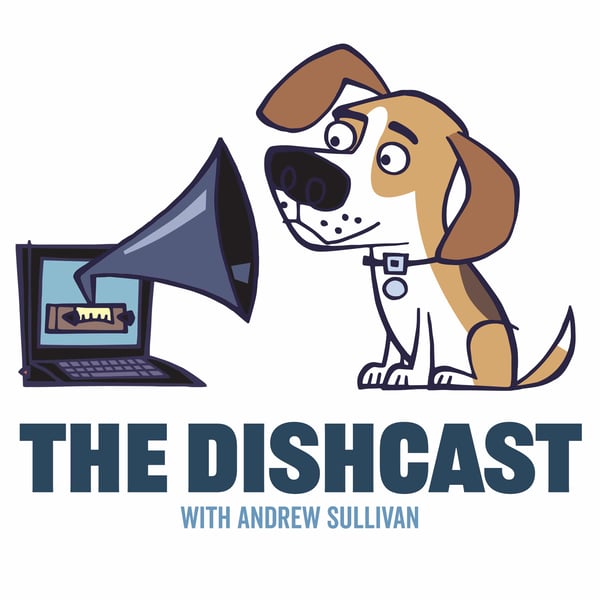Christian Wiman On God And Suffering
The Dishcast with Andrew Sullivan
Andrew Sullivan
4.6 • 836 Ratings
🗓️ 8 March 2024
⏱️ 43 minutes
🧾️ Download transcript
Summary
Christian is a poet and author, and, in my view, one of the most piercing writers on faith in our time. He served as the editor of Poetry magazine from 2003 to 2013, and his work has appeared in The Atlantic, Harper’s Bazaar, The New Yorker, the NYT Book Review and others. He’s the author, editor, or translator of more than a dozen books, and his new one is called Zero at the Bone: Fifty Entries Against Despair. Matt Sitman and I did a pod episode with him 12 years ago; so it was a real delight to reconnect for a second. I think it’s one of the best episodes we’ve yet produced. But make up your own mind.
For two clips of our convo — on finding God through suffering, and getting a glimpse of the divine through psychedelics — pop over to our YouTube page. Other topics: growing up in poverty and trauma in West Texas; his father was a Bible salesman turned doctor but volatile and addiction-prone; murder-suicide in his extended family; Christian’s anger over his upbringing; discovering poetry in college was a life preserver; the silence found in the middle and end of poems; Emily Dickinson’s dashes; Zadie Smith; how pure joy is destabilizing; C.S. Lewis; how the comforts of modern life insulate us from the ultimate questions; Pascal; the voiceless film Into Great Silence; Terrence Malick; me contemplating the Trinity on MDMA; an argument between Jesus and Nietzsche on magic mushrooms; how Nietzsche drove Christian away from God in college but eventually strengthened his faith; eternal return; “Christ is much larger than Christianity”; my friend Patrick who perished from AIDS; Christian facing oblivion with cancer many times; questioning his own faith constantly; Aeschylus; Rumi; Montaigne; Leonard Cohen; eternity as a release from time; Augustine on time; Job and undeserved suffering; theodicy; Anna Kamieńska’s poem “A Prayer That Will Be Answered”; Larkin’s “Church Going” and “This Be The Verse”; Auden; Carlo Rovelli and perception; and the profound feminism of Jesus.
Browse the Dishcast archive for an episode you might enjoy (the first 102 are free in their entirety — subscribe to get everything else). Coming up: Abigail Shrier on why the cult of therapy harms children, Richard Dawkins on religion, Johann Hari on weight-loss drugs, Adam Moss on the artistic process, and George Will on Trump and conservatism. Please send any guest recs, dissents, and other pod comments to [email protected].
Transcript
Click on a timestamp to play from that location
| 0:00.0 | The Hi there, Dachachev, another one. |
| 0:32.1 | This one, well, this one's been a while. |
| 0:35.3 | I first spoke to my guest today, 12 years ago when we actually did a sort of podcast |
| 0:43.5 | before podcasting back of the old dish. |
| 0:45.7 | We call it Deep Dish. |
| 0:46.9 | We did at the time one of our more brilliant puns. |
| 0:51.4 | Everything's about a pizza basically. Anyway, we did a conversation with my current guest, |
| 0:58.1 | which was really rewarding and interesting. And I've been thinking about him and reading him |
| 1:03.6 | ever since. And there is a book he's just put out, which is a, it's an interesting book. |
| 1:11.6 | Anyway, his name is Christian Wyman. |
| 1:13.6 | He's a poet and an author, a writer, a lecturer. |
| 1:18.6 | He served as the editor of poetry magazine itself from 2003 to 2013. |
| 1:24.6 | And he has written in places like the Atlantic Harpers, the New York Times Book Review, |
| 1:29.9 | the New Yorker, others, and he's the author, editor and translator of more than a dozen books. |
| 1:34.4 | But his new one is called Zero at the Bone, 50 entries against despair. |
| 1:43.9 | And it's very hard. |
| 1:46.6 | It's probably going to be one of the hardest podcast I've ever done because it is, |
| 1:50.8 | it covers so much ground and it also does it in a non-systematic way. |
| 1:55.0 | There are 50 different parts of this book. |
| 1:58.5 | Some of them are just single poems. |
| 2:00.4 | Some of them are reflections. Some of them are quite single poems. Some of them are reflections. Some of them |
| 2:01.8 | are quite developed essays. Some of them are memoirs. And they grapple with the big questions, |
... |
Please login to see the full transcript.
Disclaimer: The podcast and artwork embedded on this page are from Andrew Sullivan, and are the property of its owner and not affiliated with or endorsed by Tapesearch.
Generated transcripts are the property of Andrew Sullivan and are distributed freely under the Fair Use doctrine. Transcripts generated by Tapesearch are not guaranteed to be accurate.
Copyright © Tapesearch 2025.

